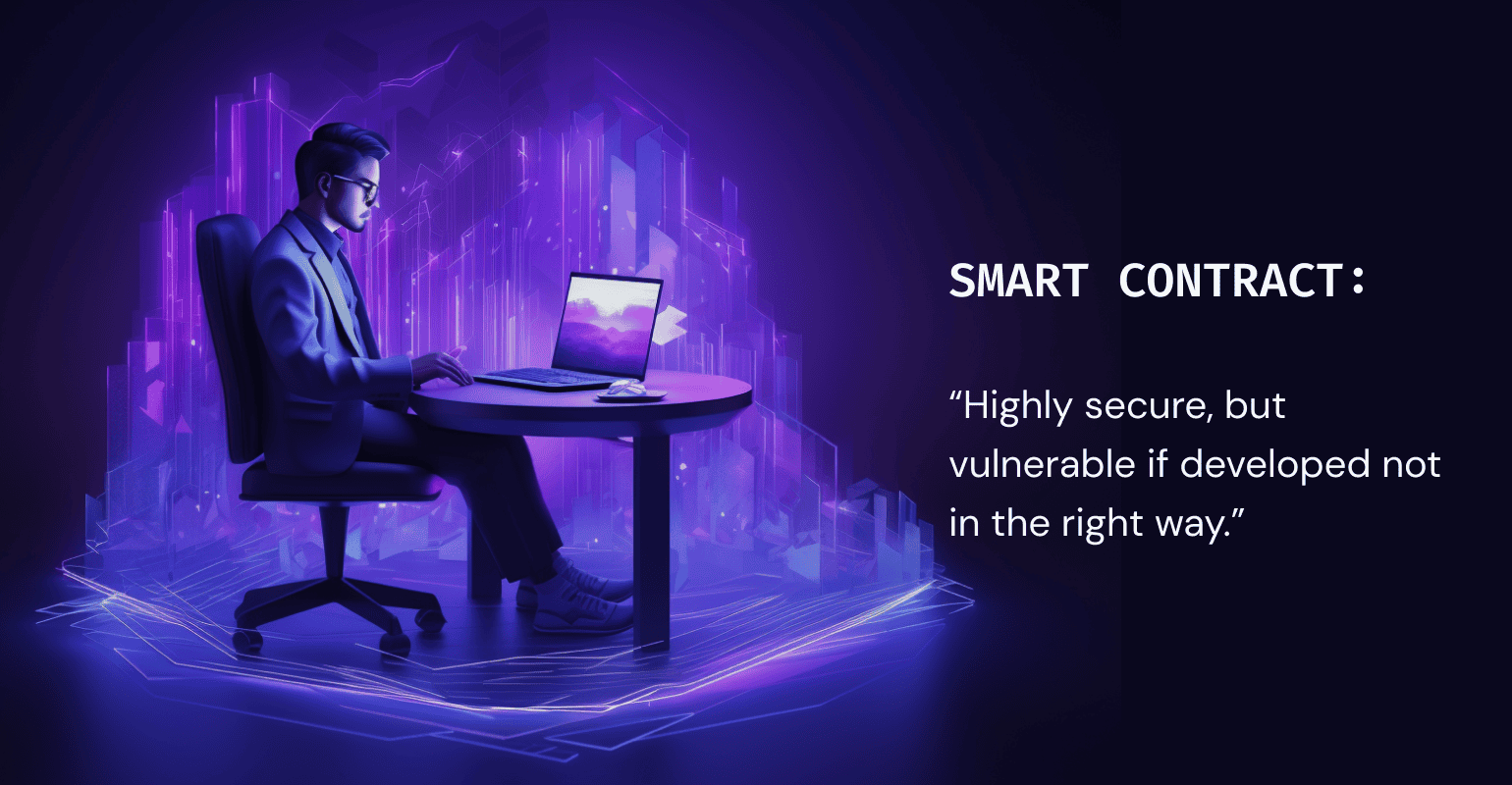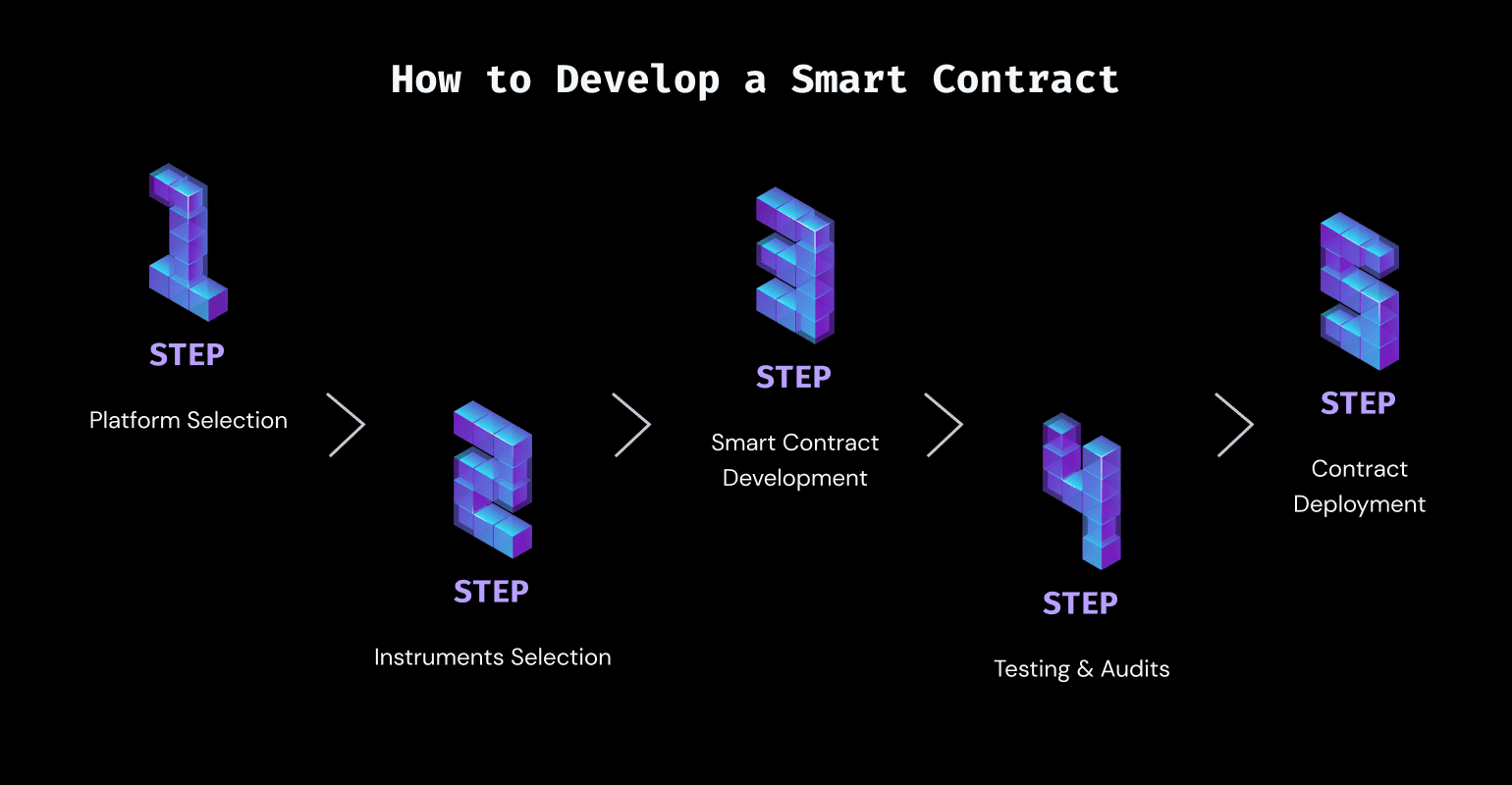
In the ever-evolving landscape of technology, blockchain has emerged as a groundbreaking innovation, revolutionizing various industries. One of its most notable achievements is the development of smart contracts. These self-executing contracts, encoded with the agreement terms, have become a game-changer for businesses worldwide. Offering unparalleled security and transparency, smart contracts automate processes, mitigate risks, enhance security measures, facilitate seamless fund transfers, and provide reliable data backup, among other benefits.
It's no surprise that leading companies, including Microsoft, Amazon, Visa, Shopify, PayPal, and McDonald's, among others, have embraced blockchain technology, with 81 of the top 100 public companies leveraging its potential. The integration of smart contracts opens new horizons for all stakeholders involved, making it a vital tool for businesses across industries. If your company hasn't yet tapped into this technology, now is the time to explore its immense possibilities.
Understanding the Importance of Secure Smart Contracts
Before delving into the process of smart contract development, it is crucial to grasp the significance of building them securely. Like any software, smart contracts demand precision and meticulousness during coding. Developers must be aware of potential risks, vulnerabilities, and adhere to industry best practices to ensure secure deployments. Taking simple precautions, such as following established guidelines and conducting reputable security audits, can prevent future headaches. Moreover, it safeguards your company's data, funds, and reputation in the face of potential hacker attacks.

Risks Associated with Poorly Developed Smart Contracts
Creating smart contracts without due care can expose your business to various risks, including:
Code vulnerabilities
Even the smallest coding mistakes can become critical vulnerabilities if not addressed promptly.
Lack of smart contract logic
Insufficient understanding of business processes and financial instruments can leave smart contracts open to exploitation by hackers.
Inefficient access control
Poorly implemented or absent access control mechanisms enable malicious actors to gain unauthorized access and exploit the contract to their advantage.
Loss of funds
Perhaps the most severe risk, losing funds erodes user trust, damages your reputation, and has far-reaching consequences for the protocol owner.
To avoid these risks, it is crucial to engage experienced developers who prioritize the security and reliability of smart contracts.
The Process of Smart Contract Development
Developing a smart contract entails several major steps:

1. Choosing a platform
Select a suitable platform based on your project requirements. Options include Ethereum, Binance, Polygon, Avalanche, NEAR, Polkadot, Solana, EOSIO, and others.
2. Selecting developer tools
Different platforms have specific language recommendations, so choose developers accordingly. However, there are common rules and best practices applicable to contract development across platforms.
3. Developing smart contract
Write code that encapsulates the agreed-upon terms and desired functionality.
4. Testing and conducting audits
Thoroughly test the smart contract's code and engage reputable companies to perform security audits.
5. Deploying and implementing contracts
Deploy the audited smart contract and integrate it into your business processes.
Best Practices for Secure Smart Contract Development
To ensure secure and reliable smart contracts, consider the following best practices:
- Utilize blockchain-specific and language-specific development practices.
- Exercise caution when implementing extra functionality, relying on proven solutions whenever possible.
- Use additional security tools and static analyzers.
- Conduct thorough testing, employing additional testing tools.
- Engage at least two reputable companies for security audits.
- Prepare deployment scripts, regardless of the contract's size.
- Take into account common mistakes in business logic and avoid them.
To streamline smart contract development and minimize errors and vulnerabilities, the Alchemis team has created separate repositories for each development branch. These repositories incorporate testing tools, industry best practices, and reliable deployment scripts.
Embrace the Potential of Smart Contracts
Smart contracts find applications across various industries, including finance, healthcare, supply chains, agriculture, and more. Their integration benefits businesses of all types, regardless of their focus or target audience. If you're ready to harness the power of smart contracts, be prepared to invest time in choosing the right platform, engaging skilled developers, adhering to industry best practices, and meeting blockchain-specific requirements. Alternatively, you can expedite the process by partnering with the Alchemis team, who will deliver highly secure and reliable smart contracts tailored to your needs.
Unlock the potential of smart contracts today and pave the way for secure and efficient business operations.








